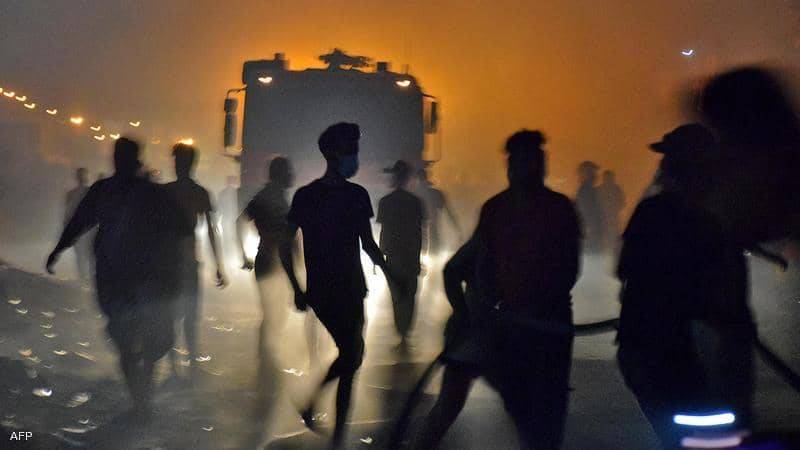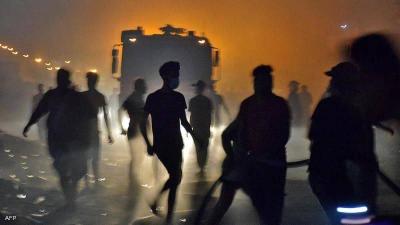Under the title "Fires in Iraq: Deliberate Actions or Result of Infrastructure Collapse?", Sky News reported on the recurring incidents of fires in various Iraqi regions in recent times, especially after the tragic incident at Al-Nasiriya Hospital for COVID-19 patients, which resulted in dozens of casualties. From a fire at Al-Muthanna Airport to thwarted attempts to set fire to a hospital in Najaf, to a hotel burning in Karbala, these intriguing incidents raise questions about systemic failures in the protection and prevention systems of public facilities throughout the country.
Furthermore, some observers mention the possibility of "hands" behind these ongoing fires, particularly the fire at Al-Nasiriya Hospital, with some suggesting it might have been intentional to embarrass Mustafa Al-Kadhimi's government, inciting discontent, chaos, and confusion ahead of the countdown to the Iraqi general elections.
Regarding the reasons for the recurrence of these fires, architect Sirwan Jamal stated in an interview with Sky News Arabia: "The recurrence of these fires, apart from conspiracy theories, is mainly due to the dilapidated infrastructure and services in Iraq, much of which has been neglected for over half a century." He added: "They have been deteriorating for years without adequate maintenance or adherence to safety and quality standards. They have turned into dilapidated buildings that could collapse at any moment, akin to ticking time bombs." Jamal emphasized that "hospitals, for instance, are all old and suffer from decay, urgently needing restoration and rehabilitation. For example, the electrical, water, and sewage systems within them are nearly outdated, making them perpetually vulnerable to accidents and disasters as we sadly witness. Additionally, their architectural planning no longer meets modern healthcare and medical facility standards worldwide."
Jamal pointed out that "most Iraqi hospitals lack fire-fighting systems; even when they exist, they are often malfunctioning or inactive. It is only natural that we witness an escalation of fires resulting from mismanagement, negligence, laxity, and a lack of accountability and oversight."
In a response, a journalist close to the government mentioned in an interview with Sky News Arabia: "In my opinion, the issue extends beyond the deterioration of infrastructure and weak governmental oversight towards a scheme to expand the scope of fires in Iraq." He elaborated: "For example, in the past days and weeks, we have seen how there have been a series of targeted and programmed attacks on electric towers and transmission lines in various Iraqi provinces, which seemed like organized sabotage with a clear objective to deepen the Iraqi electricity crisis."
He continued: "This is the case now with this ongoing series of fires, from the tragedy at Ibn Al-Khatib Hospital in Baghdad a few months ago to the disaster at Al-Hussein Hospital in Al-Nasiriya and many similar incidents... they appear to be deliberate, aiming to incinerate Iraq as a whole. For instance, the attempted arson of Al-Furat Hospital in Najaf, which the accused teenager admitted someone asked him to set on fire, reveals that these consecutive incidents are not mere coincidences, but part of a broad destructive and sabotaging scheme against Iraq."




